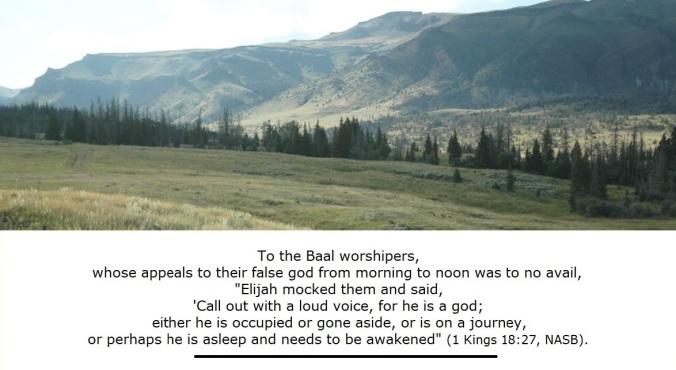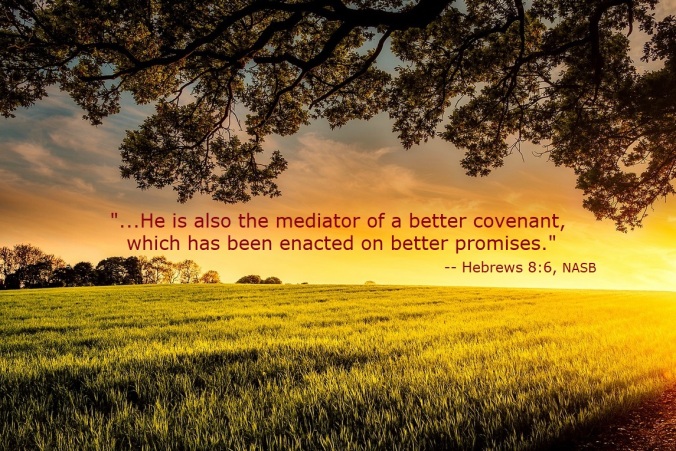“Go therefore and make disciples of all the nations…teaching them to observe all that I commanded you; and lo, I am with you always, even to the end of the age” (Matthew 28:19-20).
——————–
Contents:
1) Seeing the Road Ahead (Alan Jones)
2) News & Notes
——————–

-1-
Seeing the Road Ahead
Alan Jones
A few years ago I was traveling south on I-69 in northern Indiana when I encountered a traffic slowdown. Soon I found out why we had slowed to a crawl. There was a horrible accident on the northbound side.
Everyone was slowing down to look. The accident involved two semis. One was turned on its side with all of the glass gone from the tractor. The nose of the other tractor was shoved in like an accordion.
Immediately I prayed for the welfare of the drivers and the comfort of their families. Their lives had been suddenly and unexpectedly changed. As the drivers left the terminal for the highway, they did not know what awaited them on the road ahead. The backup caused by the accident was five miles long and was still growing. Motorists caught in it had a certain timetable in mind to get to work or to get home from work, to get to a vacation destination or to return home. But, they, too, did not know what awaited them on the road ahead. Their timetable went out the window. They were making good time when suddenly and unexpectedly they were forced to stop and wait, and wait, and wait.
Man can’t see the future. Solomon wrote, “Do not boast about tomorrow. For you do not know what a day may bring forth” (Prov 27:1). A humble person will plan accordingly. James admonished, “Come now, you who say, ‘Today or tomorrow, we will go to such and such a city, and spend a year there and engage in business and make a profit.’ Yet you do not know what your life will be like tomorrow. You are just a vapor that appears for a little time and vanishes away. Instead you ought to say, ‘If the Lord will, we will live and also do this or that.’ But as it is, you boast in your arrogance; all such boasting is evil” (James 4:13-16).
Yes, far be it from us to boast of what we’re going to do in the future when we can’t foresee a traffic tie up on the interstate or even on the bypass as we try to get to the mall or to Walmart and back home again…
Trusting in God Who Sees the Road Ahead
Our future is subject to the will of the Lord who sees the future before it happens. God proved to Israel that He is God because He knows the future. He predicted their coming destruction by a ruler from the north (Assyria) so that when it happened they would say, “He is right!” (Isa 10:5-6; 41:25-26). God even foretold what would happen after He had used Assyria and Babylon to judge His people. He would bring His sheep home by His shepherd Cyrus, calling this king of Persia by name before He was ever born (Isa 44:27-45:3). History verifies that all of these things happened as predicted by God through His prophets and hundreds of other fulfilled predictions could be added to them to confirm that there is a God who sees the road ahead.
Commenting on the Lord’s infinite knowledge, David wrote, “Even before there is a word on my tongue, Behold, O Lord, You know it all” (Ps 139:4). He marveled that God could see the end of his life from his beginning in the womb, “Your eyes have seen my unformed substance; and in Your book were all written the days that were ordained for me, when as yet there was not one of them” (Ps 139:16).
When we, as David, meditate on God’s far-reaching thoughts, we will value them — “How precious also are Your thoughts to me, O God! How vast is the sum of them!” (Ps 139:17). We will trust His thoughts above our own. As the wise man Solomon wrote, “Trust in the Lord with all your heart, and do not lean on your own understanding. In all your ways acknowledge Him, and He will make your paths straight” (Prov 3:5-6).
If we trust God, we will not worry about the future. If God looks ahead and provides for the birds who do not store up for the future, He will feed us. If God clothes the lilies of the field without their toiling or spinning, He will clothe us. Instead of being of little faith and anxious, we will turn every care into a prayer, with the confidence that He who looks ahead will provide for tomorrow. Knowing that God will take care of us on the unseen road ahead, we experience a peace that surpasses all comprehension (Mt 6:25-34; Phil 4:6-7).
If our confidence is in the One who holds the future in His Hands, we will realize that, if we love Him, God will use even the tragedy and suffering that may lie ahead on the road to accomplish His purpose in us — to help us to be conformed in our character to the image of His Son and to get us home to glory in heaven (Rom 8:28-30). We need not live in fear and dread of unseen sorrows, trusting that God will discipline us for our own good, so that we may share His holiness (Heb 12:10).
Do you trust God? Is it seen in your respect for God’s Word? Is it seen in your peace concerning both blessings and trials yet unseen? Do you trust in God who sees the road ahead or in yourself — you who cannot even anticipate an accident or traffic jam?…
What God Tells Us Is on the Road Ahead
When I passed by the exit following the end of the traffic jam and saw cars and trucks streaming along at 70 m.p.h., I thought, “I sure wish I could warn them of the five mile backup ahead so they could exit and try to find an alternate route.” There was nothing I could do but let the unsuspecting travelers run right into the delay, but I can warn you about the things God tells us as on the road ahead. But, I must tell you also, there is no escaping them. There is no alternate route.
Death is on the road ahead of you. God says, “It is appointed for men to die once” (Heb 9:27). This is an appointment we must all keep (unless we are alive at the coming of Jesus — 1 Thess 4:15). Jesus told the story of a rich farmer who made big plans with no thought of this appointment. The farmer had more harvest than he knew what to do with. He planned to tear down his barns and build bigger ones and then sit back and enjoy life for many years to come. But, he didn’t have many years left to live. In fact, God required his soul that night (Lk 12:16-20). Are you living like your life on earth will be forever or are you looking down the road?
Judgment is on the road ahead of you. God continues His sentence, “It is appointed for men to die once and after this comes judgment.” John described a vision he saw of this day, “And, I saw the dead, the great and the small standing before the throne, and the books were opened; and another book was opened, which is the book of life; and the dead were judged from the things which were written in the books, according to their deeds” (Rev 20:12). God will pronounce sentence on you based on how you lived compared to His Word and whether or not your name is in the book of life, His record of those who have a relationship with Him.
Heaven or hell is on the road ahead of you. At the Judgment, Jesus will hand out to you either the sentence of eternal life or eternal punishment (Mt 25:46). The eternal punishment is hell, the torment of the eternal fire that God has prepared for the devil and his angels (Mt 25:41; Mk 9:43-48). Eternal life is never-ending fellowship with God and His Son in heaven, being honored as His children. God will wipe away all the tears of earth life and its sorrows will never be experienced again (Rom 8:19; Rev 21:1-4).
Death and judgment you cannot change, but your eternal destination you will choose. You will choose either to receive the wages of your sins (Rom 6:23) or you will choose to have Jesus pay for them with His blood so that your name can be added to the book of life. Believe in Jesus and confess Him as your Lord (Rom 10:9-10) and repent of your sins and be baptized (Acts 2:38). Continue in the book of life by walking in the light as God is in the light, confessing your sins so that the blood of Jesus will make you pure (1 Jn 1:5-10). Remember, no one will arrive at heaven by accident and you must get there by the road less traveled (Mt 7:13-14).
Is heaven or hell at the end of the road you are traveling?…
— Via The Auburn Beacon
——————–
“Children, obey your parents in the Lord, for this is right. HONOR YOUR FATHER AND MOTHER (which is the first commandment with a promise), SO THAT IT MAY BE WELL WITH YOU, AND THAT YOU MAY LIVE LONG ON THE EARTH” (Ephesians 6:1-3, NASB).
——————–
The Steps That Lead to Eternal Salvation
1) Hear the gospel, for that is how faith comes (Rom. 10:17; John 20:30-31).
2) Believe in the deity of Christ (John 8:24; John 3:18).
3) Repent of sins (Luke 13:5; Acts 17:30).
4) Confess faith in Christ (Rom. 10:9-10; Acts 8:36-38).
5) Be baptized in water for the remission of sins (Mark 16:16; Acts 2:38; 22:16; Rom. 6:3-4; Gal. 3:26-27; 1 Pet. 3:21).
6) Continue in the faith, living for the Lord; for, if not, salvation can be lost (Heb. 10:36-39; Rev. 2:10; 2 Pet. 2:20-22).
——————–
Tebeau Street
CHURCH OF CHRIST
1402 Tebeau Street, Waycross, GA 31501
Sunday services: 9:00 a.m. (Bible class); 10 a.m. & 5 p.m. (worship)
Wednesday: 7 p.m. (Bible class)
evangelist/editor: Tom Edwards (912) 281-9917
Tom@ThomasTEdwards.com
http://thomastedwards.com/go (Older version of Gospel Observer website without pictures, but back to March 1990)
http://tebeaustreetchurchofchrist.org/
http://ThomasTEdwards.com/audioser.html (audio sermons)












